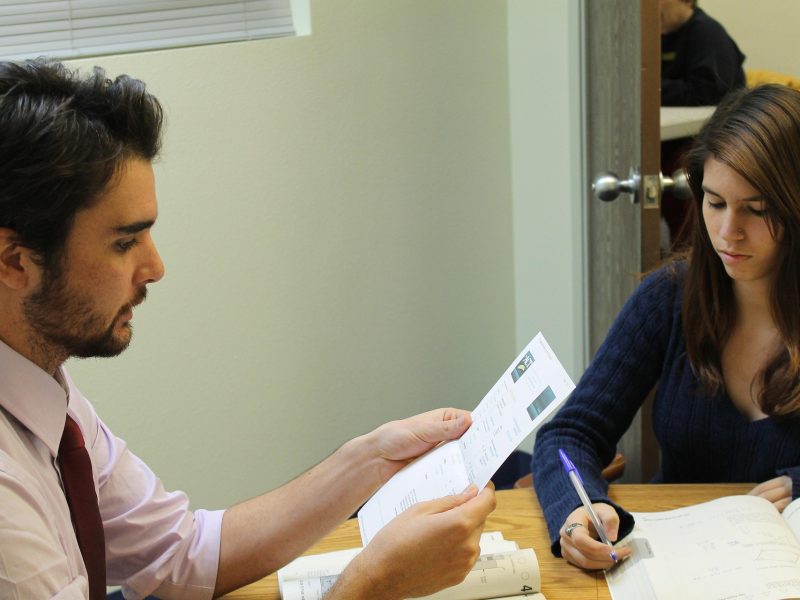Education is ultimately about preparation – equipping young people not just with knowledge, but with the skills and character traits needed to navigate an increasingly complex world successfully. While strong academics are foundational, parents and educators recognize that true readiness for college and careers involves much more.
Skills like resilience, the ability to bounce back from adversity, and time management, the capacity to organize and prioritize effectively, are crucial for navigating future challenges and opportunities. Boarding schools, with their unique immersive and demanding environments, are often highlighted as particularly effective crucibles for forging these essential life skills.

How does the experience of living and learning away from home cultivate these specific competencies? For parents investing in their child’s future and teachers dedicated to holistic student development, understanding the mechanisms by which boarding schools build resilience and time management is key. This post explores how the structure, challenges, and support systems inherent in the boarding school model actively prepare students for the future by instilling these critical skills.
Time Management: Learning to Juggle Priorities in a Busy World
One of the most immediate and practical skills students develop at boarding school is effective time management. The typical boarding school schedule is packed – classes, mandatory study halls, sports practices, arts rehearsals, club meetings, meals, social time, and personal responsibilities all compete for attention. Unlike day students who might have parents helping to structure their evenings and weekends, boarders must learn to navigate this complex schedule largely on their own.
Schools provide a framework, often including designated study hours and activity blocks, but students must learn to prioritize within that structure. They face daily decisions: Should I start the history paper or review for the math quiz during study hall? Can I fit in a workout before dinner? Do I have time for a club meeting and finishing my lab report? As highlighted by Oak Hill Academy’s blog, learning to make these choices, plan ahead for deadlines, break down large tasks, and utilize tools like planners or digital calendars becomes essential for survival, let alone success.
This constant, real-world practice in juggling multiple commitments within a structured yet demanding environment is unparalleled preparation for the autonomy and heavy workload of college and the fast-paced demands of professional life. Graduates often report feeling significantly better prepared to manage their time effectively compared to peers who didn’t have this early, intensive practice.
Resilience: Building Strength Through Navigating Challenges
Life inevitably involves setbacks, disappointments, and challenges. Resilience, the capacity to face adversity, adapt, and bounce back stronger, is arguably one of the most critical traits for long-term success and well-being. The boarding school experience, while supportive, inherently presents numerous opportunities to build this crucial skill.
Students face academic challenges – difficult courses, demanding teachers, occasional poor grades. They navigate social complexities – disagreements with roommates, shifting friendships, finding their place in the community. They experience homesickness, especially early on. They face setbacks in extracurriculars – not making the team, losing a competition, receiving critique in the arts. As Colorado Rocky Mountain School’s blog emphasizes, learning to manage these difficulties away from the immediate buffer of parental intervention forces students to develop coping mechanisms, problem-solving skills, and emotional regulation.
They learn to seek support from advisors, counselors (part of Mental Health Support), or friends, leveraging the school’s Mentorship structures. They learn to persevere through difficult assignments or demanding practices. They learn that failure is not final but an opportunity for growth. The supportive community ensures they don’t face these challenges alone, providing guidance and encouragement. However, the process of overcoming obstacles largely rests with the student, fostering a sense of competence and the belief in their own ability to handle difficult situations. This earned resilience is a profound asset, equipping students to face future academic, professional, and personal challenges with greater confidence and adaptability.
Independence and Self-Reliance: Taking Ownership
As discussed previously (in Developing Independence), the development of self-reliance is intrinsically linked to skills like time management and resilience. By living away from home, students take ownership of their learning, their schedules, and their well-being. They learn to wake themselves up, manage their workload, make responsible choices about their free time, and handle personal tasks. This independence fostered by boarding school is not just about practical skills; it’s about developing an internal locus of control – the belief that one is capable of managing one’s own life and influencing outcomes. This sense of agency is fundamental to motivation, goal-setting, and proactive engagement in learning and life.
Problem-Solving and Decision-Making: Everyday Practice
From resolving a conflict with a roommate to figuring out how to get help with a confusing assignment or deciding which activities to prioritize, boarding school life presents constant opportunities for problem-solving and decision-making. Students learn to analyze situations, weigh options, consider consequences, and implement solutions, often with guidance but increasing autonomy over time.
This practical application of critical thinking skills in real-life situations is invaluable. They learn to troubleshoot academic difficulties, navigate social dilemmas, and manage logistical challenges. The relatively safe and structured environment allows them to practice these skills where the stakes are lower than they might be later in life. Developing sound judgment and effective problem-solving strategies during adolescence provides a strong foundation for navigating the more complex decisions and challenges of adulthood.
Communication and Interpersonal Skills: Thriving in Community
Living 24/7 in a diverse community necessitates the development of strong communication and interpersonal skills. Students learn to articulate their needs and perspectives clearly, listen actively and respectfully to others (even when they disagree), negotiate compromises, and collaborate effectively on group projects or team endeavors.
They learn to navigate disagreements with roommates or friends constructively. They practice communicating formally with teachers and administrators to seek help or advocate for themselves. They engage in classroom discussions, club meetings, and team huddles, honing their ability to contribute meaningfully to group efforts. Exposure to peers from diverse backgrounds further enhances their ability to communicate across cultural differences. These highly transferable skills are essential for success in collaborative academic environments like college and in virtually every professional field.
Global Awareness and Adaptability
Many boarding schools attract students from across the country and around the world. Living and learning alongside peers from different cultures, backgrounds, and perspectives fosters global awareness and adaptability. Students gain firsthand understanding of different cultural norms, develop cross-cultural communication skills, and broaden their worldview.
Adapting to the routines and expectations of the boarding school community itself, especially for students coming from different educational systems or cultural contexts, builds flexibility and adaptability. Learning to navigate a new environment, understand different perspectives, and thrive outside one’s comfort zone are crucial skills for success in an increasingly interconnected and rapidly changing world.
Conclusion: Forging Competence for a Complex Future
Boarding school is far more than just an academic institution; it is a comprehensive life-preparation experience. The unique combination of academic rigor, structured independence, community living, and inherent challenges provides fertile ground for cultivating essential life skills that extend far beyond the classroom. Students emerge not only with a strong education but also with demonstrably enhanced time management abilities, profound resilience forged through overcoming adversity, increased self-reliance, sharpened problem-solving skills, and sophisticated interpersonal competence.
For parents considering the future readiness of their child, the skills gained at boarding school represent a significant return on investment, providing tangible advantages for navigating the demands of college, career, and life. For educators within these environments, the opportunity to actively foster these competencies is a core part of their mission. By intentionally leveraging their unique structure, boarding schools play a vital role in preparing students for the future, shaping capable, confident, and adaptable individuals ready to thrive in whatever challenges and opportunities lie ahead.











